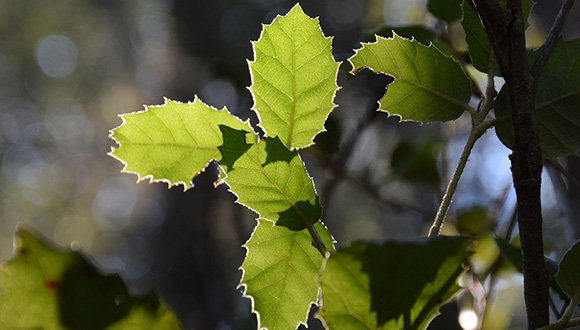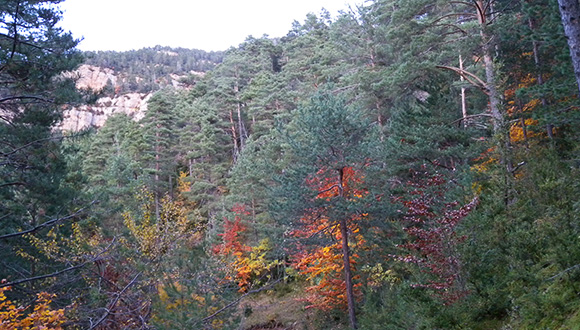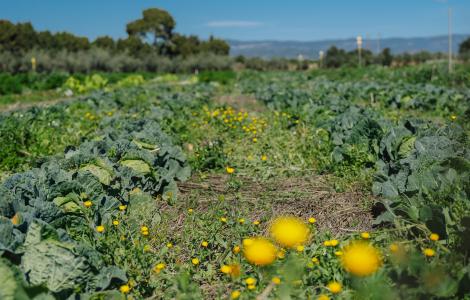The lack of management in Mediterranean forests is accelerating substitutions of pine with holm oak
A CREAF-led study shows that colonization by holm oak and other broadleaf species in the Iberian Peninsula is occurring much faster than previously thought, the main causes being reductions in forest management and climate change.

Broadleaf trees of the Iberian Peninsula – in particular, holm oaks and other Iberian oak species – are generally found as understory species in the shade of different pine species. However, repeated drought and increased incidence of forest fires (both being consequences of climate change) are causing broadleaf trees to gain prominence since they can adapt better to such disturbances. Now, a study published in the journal Global Change Biology alerts that decreased forest management is also shifting the balance in favor of broadleafs, in particular holm oaks, which are colonizing Mediterranean forests faster than expected. The study was carried out using data from more than 33,000 plots from Spanish National Forest Inventories.
In reality, this contemporary species substitution might be considered as a re-occupation of terrain previously held by the holm oak: “The holm oak is a typical Mediterranean species which many years ago may have covered very large areas of the Peninsula, but forest management and economic factors have favored pines – in detriment to the holm oaks – because the wood was more highly valued,” says the new article’s first author, Jordi Vayreda.
Forests situated in the North and in mountainous areas in the middle of the Peninsula may be most affected since they may not be able to withstand projected drought episodes.
It remains to be seen if these changes in management could result in a problem for the stability of forests, above all in Northern Spain where central European species dominate - species which are less adapted to the Mediterranean climate, including the Scots pine. Substitutions are also taking place in this region, with pine forests yielding to the beech. Beech forests are not adapted to severe drought, and if projections of increased aridity caused by climate change are correct, this could spell dire consequences for these forests.

Seed-dispersing animals and shade tolerance also favor holm oaks
Apart from reductions in forest management, the study also highlights two other factors which favor substitution of pine with beeches and oaks; the first is that broadleaf species’ seeds are dispersed by animals, meaning that their colonization can occur more quickly and over a larger range. The second reason is that the majority of broadleafs can germinate and grow in the shade, whereas most pines can only grow in conditions with high amounts of sunlight.
Temperature is also an important factor. It was found that at higher altitudes where the climate is colder, the pace of colonization by broadleafs is faster, whereas pines disappear most quickly at low altitudes.
It is also shown that these species substitutions would still occur even without the influence of climate change, though not as rapidly. “Once again, this study has highlighted the importance of forest management for adapting our forests to climate change,” says Vayreda.
Article of reference:
Vayreda, J., Martinez-Vilalta J., Gracia, M., Canadell, J.G. i Retana, J. (2016). Anthropogenic-driven rapid shifts in tree distribution lead to increased dominance of broadleaf species. Global Change Ecology. 22: 3984-3995. DOI: 10.1111/gcb.13394







